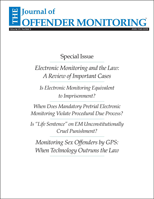Smart Justice for DWI Offenders: Cost Effective Solutions that Reduce Recidivism and Promote Public Safety
Author: Stephen K. Talpins, J.D..; Robert B. Voas.; Robert L. DuPont, MD.; Corinne L. Shea.
Source: Volume 23, Number 01, Spring/Summer 2010 , pp.9-12(4)

< previous article |next article > |return to table of contents
Abstract:
In the century since New York became the first state to criminalize impaired driving we have learned that incarceration is not the solution. Jail and prison are extremely expensive and overcrowding is reaching a crisis point. Further, while incarceration provides the most effective way to incapacitate offenders, vis-à-vis the public during their stay, it has little impact on long term behavior and almost all offenders are released back into their communities. Consequently, our nation cannot “incarcerate our way out of the DWI problem.” A growing body of research shows that recidivism can be reduced by addressing offenders’ underlying criminogenic behaviors and deterring additional misconduct in the community. Recently, several new and cost-effective model community based programs have been developed that reduce recidivism and incarceration rates for DWI and other offenders. This article provides an overview of the programs and suggests ways to achieve the twin goals of reducing crime and reducing costs, what we call “Smart Justice.”Keywords: Hawaii’s Opportunity Probation with Enforcement; HOPE; 24/7 Sobriety Project (South Dakota); DWI Courts; Judge Steven S. Alm; Angela Hawken; Larry Long; “No Use” Standard
Affiliations:
1: National Partnership on Alcohol Misuse and Crime; 2: Pacific Institute for Research and Evaluation; 3: Institute for Behavior and Health, Inc; 4: Institute for Behavior and Health, Inc.